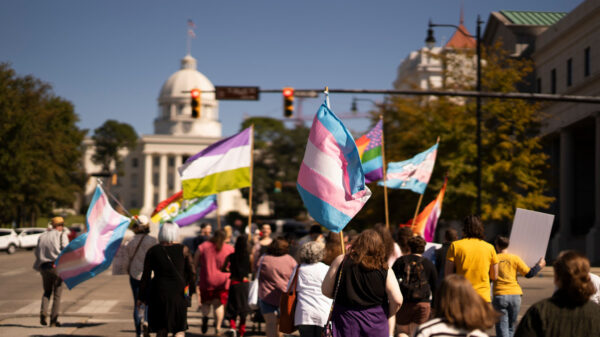|
Getting your Trinity Audio player ready...
|
The 2024 Municipal Equality Index (MEI), a pioneering nationwide assessment of LGBTQ+ equality, reveals a stark divide in Alabama’s cities. Released by the Human Rights Campaign Foundation (HRC) in partnership with the Equality Federation, this thirteenth annual report highlights both progress and persistent challenges in municipal policies, laws, and services across the state.
Nationwide, the MEI continues to set new benchmarks for inclusivity, with a record-breaking 130 cities achieving perfect scores of 100, surpassing the previous high of 129 in 2023. Only six cities nationwide scored zero, showcasing remarkable progress in many municipalities while underscoring the barriers that remain. In Alabama, Birmingham distinguished itself with a perfect score of 100, serving as a model of leadership and commitment to inclusivity. However, other cities fell significantly behind: Auburn scored 31, Tuscaloosa 44, Montgomery 38, Mobile 36, Huntsville 26, and Florence and Hoover trailed at just 12 points each. These scores reflect a troubling disparity in the state’s approach to protecting and affirming LGBTQ+ residents.
Fran Hutchins, Executive Director of the Equality Federation Institute, highlighted the resilience of local advocates in the face of opposition. “We are interconnected as a community. Despite anti-equality politicians targeting people based on race or gender, local communities persist in fighting for freedom and fairness,” Hutchins said. However, the MEI also underscores the tension between progressive local initiatives and restrictive state policies. Transgender-inclusive health benefits, once offered by many cities, have been curtailed in 35 percent of cases due to preemptive state laws, resulting in a loss of points for affected municipalities.
Since its inception in 2012, the MEI has demonstrated the growing influence of local governments in shaping a more inclusive society. Only 11 cities achieved a perfect score in its first year, compared to 240 municipalities in 2024 that now provide transgender-inclusive healthcare benefits. Kelley Robinson, President of HRC, emphasized the importance of local leadership in driving progress. “Mayors and city councilors who take LGBTQ+ inclusion seriously build stronger communities, and in turn, their cities thrive. Many cities scoring highly this year achieved that in states hostile to LGBTQ+ equality, showing the way forward. We celebrate their hard work.”
While Birmingham’s perfect score is a testament to its leadership, the broader results in Alabama expose a lack of urgency among many municipalities to adopt policies that protect and affirm LGBTQ+ residents. Cities like Florence and Hoover, with scores of just 12, illustrate the pressing need for stronger local protections and equity-focused leadership. The MEI evaluates cities on several criteria, including non-discrimination laws, inclusivity in municipal services, LGBTQ+ representation in local government, and policies ensuring safety and health equity.
As Hutchins noted, the MEI serves as both a progress report and a call to action. “The Municipal Equality Index underscores the need to invest in local leaders, on-the-ground capacity, and the fight for local protections wherever possible,” she said. In Alabama, state-imposed barriers to equality, such as the rollback of transgender-inclusive health benefits, complicate local efforts to foster inclusivity. Still, Birmingham’s success offers a roadmap for other cities to follow.
As Alabama’s cities navigate the complex intersection of local advocacy and state-imposed restrictions, the MEI serves as a reminder of the critical role municipalities play in building inclusive communities. Birmingham’s example shows that progress is achievable even in challenging environments, but achieving statewide equity will require bold action and a commitment to justice. To learn more and view the full 2024 MEI report, visit the Human Rights Campaign’s official website.





















































